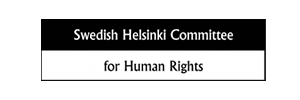CENTRUL DE DREPT AL AVOCAŢILOR ANUNŢĂ CONCURS DE SELECTARE A UNUI TRADUCĂTOR PENTRU EFECTUAREA TRADUCERII A 10 DECIZII CEDO DIN ENGLEZĂ ÎN ROMÂNĂ
Prezenta solicitare este făcută în contextul proiectului implementat de Centrul de Drept al Avocaţilor în perioada 20 iunie 2012 – 20 aprilie 2013: “Cunoştinţe consolidate ale avocaţilor privind cazurile de discriminare”,finanţat de Fundaţia Soros-Moldova/Programul Egalitate şi Participare Civică.
Proiectul are drept scop consolidarea capacităţilor avocaţilor privind acordarea asistenţei juridice în cazurile de discriminare pe teritoriul Republicii Moldova. În cadrul proiectului, se preconizează a fi informaţi 240 de avocaţi din şase regiuni ale ţării privind acordarea asistenţei juridice în cazurile de discriminare.
Centrul de Drept al Avocaţilor va asigura traducerea unui volum de 205 de pagini (aproximativ 433,192 caractere cu spații) ale următoarelor decizii CEDO:
- Anakomba Yula vs. Belgia
- Baczkowski şi alţii vs. Polonia
- Larkos vs. Cipru
- Paulik vs. Slovacia
- Religionsgemeinschaft Der Zeugen Jehovas şi alţii vs. Austria
- Salgueiro Da Silva Mouta vs. Portugalia
- Schalk and Kopf vs. Austria
- Thlimmenos vs. Grecia
- Turan Cakir vs. Belgia
- Willis vs. Regatul Unit
Cerințe pentru participare
Persoanele interesate vor prezenta dosarele care vor conține:
- Copia buletinului de identitate;
- CV-ul sau orice alt document care poate servi drept dovadă a experienței de traducere a textelor cu specific juridic;
- Proba de traducere în limba română a fragmentelor pre-selectate de Centrul de Drept al Avocaţilor vezi documentul
- Oferta financiară prezentată în USD (inclusiv taxele şi impozitele aferente), care va fi calculată reieșind din tariful pentru 1800 de caractere făra spații.
Termenul de executare a traducerii complete: 20 decembrie 2012.
Ofertele care nu vor fi conforme cerințelor vor fi descalificate.
Criterii de selectare
- Cunoştinţe avansate de limbă engleză şi română;
- Experienţă de traducere a documentelor juridice;
- Cunoaşterea terminologiei în domeniile: sociologie, drepturile omului.
Termenul de depunere a dosarelor
Dosarele pot fi transmise în formă electronică la adresa de e-mail law-center@cda.mdsau depuse personal la sediul Centrul de Drept al Avocaţilor, mun. Chişinău, str. Vlaicu Pârcălab 8, până luni, 6 august, ora 18:00.
Persoană de contact: Oleg Palii, Coordonator de Proiect, tel. (022) 240899, e-mail: oleg.palii@cda.md.
Fragment a unui caz CEDO pentru traducere:
C. The eviction proceedings
10. On 3 February 1990 the government of Cyprus instituted proceedings against the applicant before the District Court of Nicosia to have him evicted. The government submitted, inter alia, that the applicant did not occupy the house under a tenancy agreement within the meaning of the Rent Control Law 1983, but that the premises had been allocated to him by administrative order because of his position in the civil service.
11. On 5 February 1992 the District Court of Nicosia gave judgment against the applicant. The court did not pronounce on the issue of the title under which the applicant occupied the premises. The court’s interpretation of the Rent Control Law 1983 led it to conclude that its protection did not extend to the applicant since it only bound private owners of property and not the Cypriot State. A person who rented premises owned by the State could not therefore be considered a “statutory tenant” protected by that Law.
The applicant was ordered to vacate the premises before 30 June 1992.
D. The applicant’s contentions on appeal
12. The applicant appealed against the judgment to the Supreme Court relying on Article 14 of the Convention and Article 1 of Protocol No. 1. At the hearing before the Supreme Court the applicant relied essentially on the following argument: his rights as a tenant were “property rights” within the meaning of Article 1 of Protocol No. 1 and he was the victim of discrimination in the enjoyment of these rights because the Rent Control Law 1983, as interpreted by the District Court of Nicosia, gave no protection to tenants of the State whereas the same Law protected the State as a “statutory tenant” when it rented premises owned by a private individual. The applicant also submitted that he was the victim of a further act of discrimination in that he enjoyed less protection under the relevant Law than tenants of private persons.
E. The dismissal of the applicant’s appeal
13. On 22 May 1995 the Supreme Court dismissed the applicant’s appeal, considering that he could not claim any property rights under Article 1 of Protocol No. 1 as a tenant. The court also found that, in any event, the notion of equality did not require that a person who enjoyed the protection of the Rent Control Law 1983 as a tenant should be automatically required to grant the same protection to his or her tenants if that person happened to own property. Finally, the court considered, in an obiter dictum, that even if the case concerned the different treatment reserved by the law to property rented out by private owners and to property rented out by the State, there would be no violation of the Constitution or the Convention because “it would be reasonable to consider that it is not necessary to grant protection [to tenants] vis-à-vis the [State] which [is] not in the same position as a private owner and [is] not expected to administer the property of the State according to criteria similar to those guiding a private owner”.
Further to this decision, the applicant has been threatened with imminent eviction





















